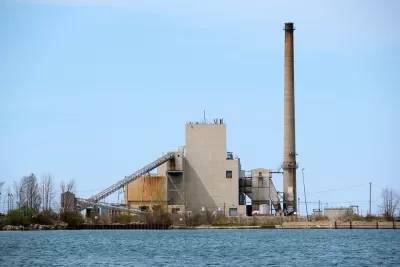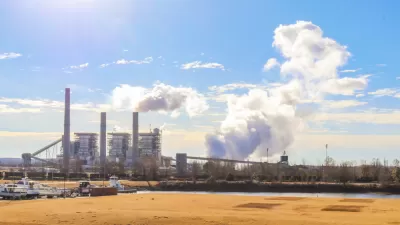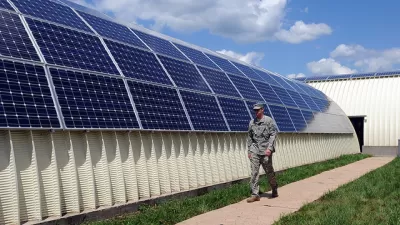Apparently Michigan's largest electricity supplier did not receive the Trump memo that the Clean Power Plan will be rolled back as they are proceeding on a plan that will achieve even higher carbon emission reductions.

The Trump administration has shown its willingness and ability to roll back what they consider to be burdensome regulations, such as its executive order to initiate the rollback of the Clean Power Plan rule, but changing market conditions is beyond their scope, and that's what DTE Energy, as well as all other investor-owned utilities, must confront in their long-term planning.
On May 16, DTE announced plans "for a dramatic transformation of its power generation — an 80% reduction in carbon emissions and the shuttering of all of its coal-fired power plants by 2050," writes Keith Matheny, environmental reporter reporter for the Detroit Free Press.
The $15-billion proposal would leave customers of the nation's seventh-largest energy utility receiving 40% of their power from new, natural gas-fired power plants; 40% from renewable energy, made possible by a dramatic increase in primarily wind power; and 20% from nuclear...
The Clean Power Plan rule, which no longer has a full description on the U.S. Environmental Protection Agency website even though it still exists, though not enforced due to a court ruling, calls for the power sector to cut emissions 32 percent below 2005 levels by 2030. DTE's plan will cut carbon emission 45 percent by 2030.
Trump and his Environmental Protection Agency administrator, Scott Pruitt, may be climate change deniers, but that view is not prevalent in the energy industry.
"Climate change is a big deal — I think it's the defining policy issue of our era; certainly for the energy industry, it is the defining policy issue," DTE Chairman and CEO Gerry Anderson said. "Both I personally and the senior leadership of this company believe we have a responsibility and believe the country has a responsibility, to address this."
Market conditions don't favor coal
The utility is also motivated by stark reality: Seven major aging coal-fired power plants that would soon require expensive upgrades. DTE last year announced the shutdown of 11 coal units by the early 2020s.
"The economics argue for retirement," Anderson said. "They are old, and as major investments come up, it simply does not make sense to continue replacing components in these plants when we see their lives as being short."
In 2015, the utility announced the shuttering of 25 coal power plants. While that decision predated the Clean Power Plan, the rule did figure into the utility's long-range planning.
More evidence of markets favoring renewables
On May 15, the state's largest utility, Consumers Energy, "announced a tariff it filed with state regulators that allows large commercial customers to purchase generation specifically from new renewable energy projects," reports Midwest Energy News. "Consumers said the three-year, voluntary pilot program is in direct response to growing demand from corporations for renewable energy."
FULL STORY: DTE plans for no coal plants, 80% cut in carbon by 2050

Planetizen Federal Action Tracker
A weekly monitor of how Trump’s orders and actions are impacting planners and planning in America.

San Francisco's School District Spent $105M To Build Affordable Housing for Teachers — And That's Just the Beginning
SFUSD joins a growing list of school districts using their land holdings to address housing affordability challenges faced by their own employees.

The Tiny, Adorable $7,000 Car Turning Japan Onto EVs
The single seat Mibot charges from a regular plug as quickly as an iPad, and is about half the price of an average EV.

With Protected Lanes, 460% More People Commute by Bike
For those needing more ammo, more data proving what we already knew is here.

In More Metros Than You’d Think, Suburbs are Now More Expensive Than the City
If you're moving to the burbs to save on square footage, data shows you should think again.

The States Losing Rural Delivery Rooms at an Alarming Pace
In some states, as few as 9% of rural hospitals still deliver babies. As a result, rising pre-term births, no adequate pre-term care and "harrowing" close calls are a growing reality.
Urban Design for Planners 1: Software Tools
This six-course series explores essential urban design concepts using open source software and equips planners with the tools they need to participate fully in the urban design process.
Planning for Universal Design
Learn the tools for implementing Universal Design in planning regulations.
Smith Gee Studio
City of Charlotte
City of Camden Redevelopment Agency
City of Astoria
Transportation Research & Education Center (TREC) at Portland State University
US High Speed Rail Association
City of Camden Redevelopment Agency
Municipality of Princeton (NJ)





























